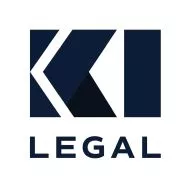If you want to negotiate a commercial loan, or the sale, exchange, or rental of real property located in New York, and receive a fee for your services, chances are that you need to have some sort of a real estate license. This article will discuss some of the licensing requirements and restrictions for dealing with real estate in the State of New York as it pertains to brokers.
What Do Real Estate Brokers Do?
First off, let's start with the basics. What do real estate brokers actually do? Real estate brokers are usually involved throughout the process of a real estate deal as they are instrumental in connecting the parties at the onset of a deal and helping the deal points get "fleshed out." Brokers will often help negotiate the offer letter – also referred to as the LOI or term sheet – as well. Many sellers and landlords of real estate don't like to directly speak with like buyers and tenants. In these instances, the brokers will be the go between; for example, if the market conditions change and one party is looking to re-trade on a deal price, the broker is often the one to relay the re-trade to the other side.
New York Real Estate Broker License Requirements
All New York real estate brokers licenses are given out by the New York Department of State. In order to qualify for a broker license, an individual needs to have at least
- Two years "under their belt" as a licensed real estate salesperson, or
- Three years of experience in general real estate businesses.
Additionally, the potential broker will need to
- Complete 152 hours of real estate courses which are provided by the Secretary of State, and
- Pass an exam issued by the Department of State.
Once received, a broker's license will need to be renewed every two years. With that said, merely obtaining your license and renewing the same every two years is not enough. In order to maintain a broker license, a broker needs to complete a certain number of hours of continuing education as well.
What Type of Agreements Do Brokers Enter?
Brokers will usually enter into one of three different types of agreements: (i) a non-exclusive, (ii) an exclusive agency listing, and (iii) an exclusive right to sell or lease listing.
Non-Exclusive Agreement
What is a non-exclusive agreement? A non-exclusive type of agreement is when the broker has the right, along with other brokers, to bring potential prospects to the seller or landlord of real estate. Whichever broker brings the tenant or buyer will be the broker that will receive the commission. Brokers don't like this type of agreement because it may be hard to effectively market the deal when there are other brokers trying to do the same thing.
Exclusive Agency Listing
What is an exclusive agency listing? An exclusive agency listing is when a broker is given the exclusive opportunity to market the property. Even if a different broker brings a tenant or buyer to a seller or landlord, the exclusive broker will receive a commission. The only way that the broker will not receive a commission is if the seller or landlord finds a buyer or tenant itself.
Exclusive Right to Sell or Lease Listing
Last is the exclusive right to sell or lease a listing. What is the exclusive right to sell or lease a listing? The exclusive right to sell or lease a listing is where, no matter who brings in a tenant or buyer - even the seller/landlord - the broker will receive its commission. This is obviously the most favored type of agreements that brokers strive to enter into. The one caveat is that if another broker finds a tenant or buyer, the exclusive broker will need to split its commission with the finding broker.
The above are just a few examples of broker-related matters.
The content of this article is intended to provide a general guide to the subject matter. Specialist advice should be sought about your specific circumstances.

